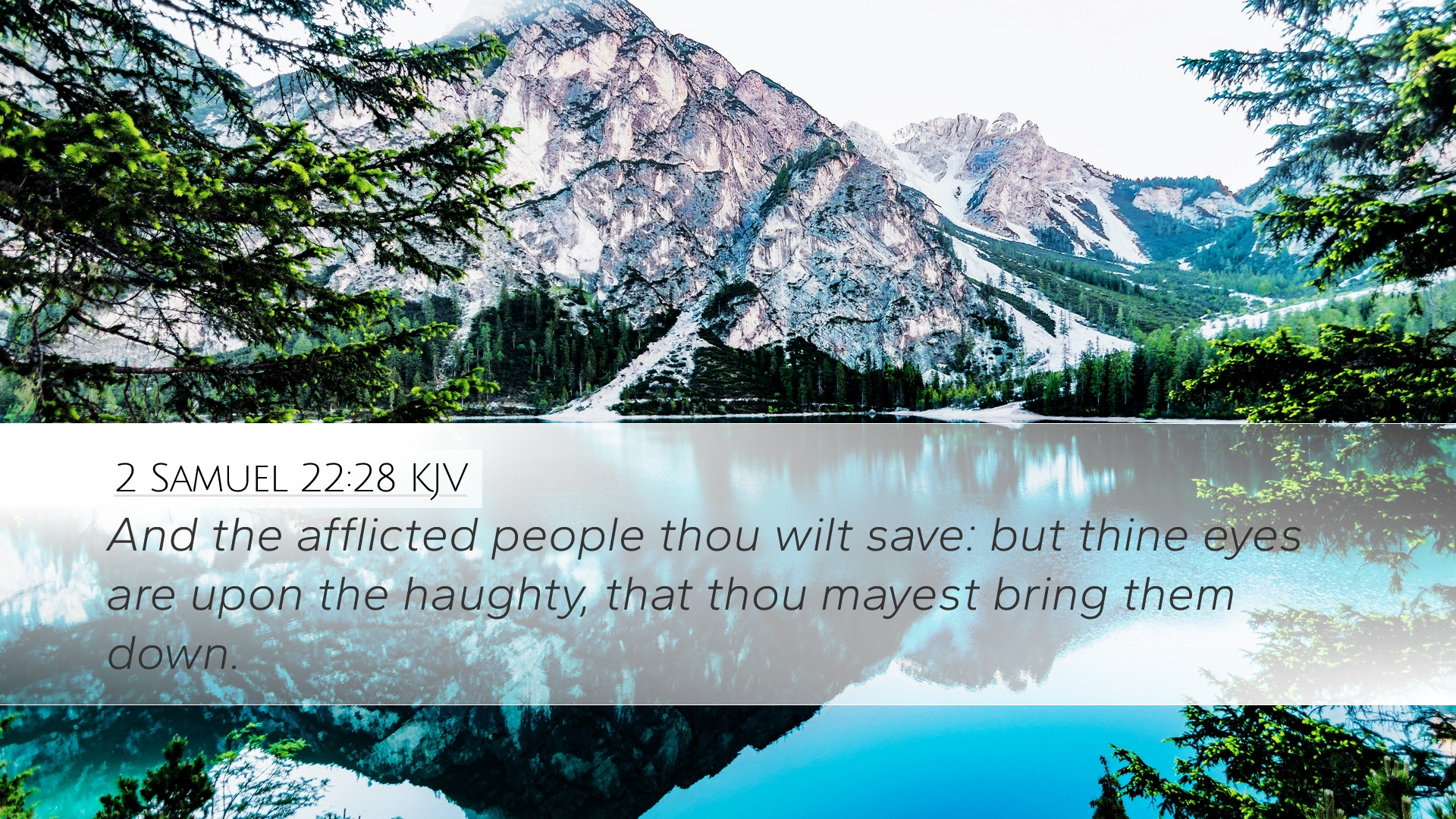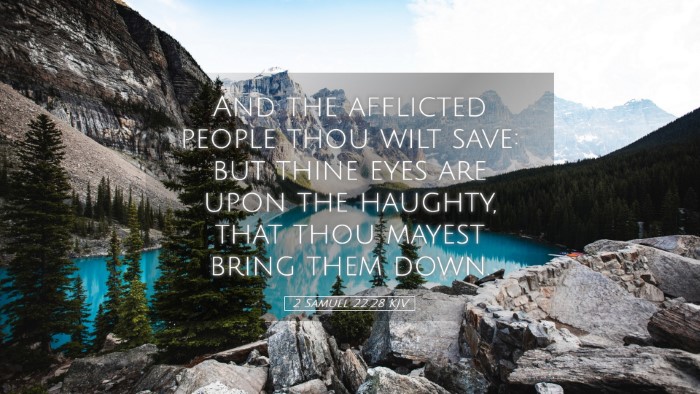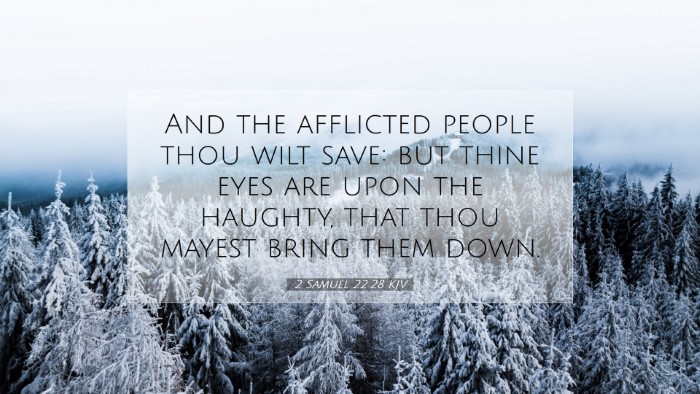Old Testament
Genesis Exodus Leviticus Numbers Deuteronomy Joshua Judges Ruth 1 Samuel 2 Samuel 1 Kings 2 Kings 1 Chronicles 2 Chronicles Ezra Nehemiah Esther Job Psalms Proverbs Ecclesiastes Song of Solomon Isaiah Jeremiah Lamentations Ezekiel Daniel Hosea Joel Amos Obadiah Jonah Micah Nahum Habakkuk Zephaniah Haggai Zechariah MalachiVerse
2 Samuel 22:1 2 Samuel 22:2 2 Samuel 22:3 2 Samuel 22:4 2 Samuel 22:5 2 Samuel 22:6 2 Samuel 22:7 2 Samuel 22:8 2 Samuel 22:9 2 Samuel 22:10 2 Samuel 22:11 2 Samuel 22:12 2 Samuel 22:13 2 Samuel 22:14 2 Samuel 22:15 2 Samuel 22:16 2 Samuel 22:17 2 Samuel 22:18 2 Samuel 22:19 2 Samuel 22:20 2 Samuel 22:21 2 Samuel 22:22 2 Samuel 22:23 2 Samuel 22:24 2 Samuel 22:25 2 Samuel 22:26 2 Samuel 22:27 2 Samuel 22:28 2 Samuel 22:29 2 Samuel 22:30 2 Samuel 22:31 2 Samuel 22:32 2 Samuel 22:33 2 Samuel 22:34 2 Samuel 22:35 2 Samuel 22:36 2 Samuel 22:37 2 Samuel 22:38 2 Samuel 22:39 2 Samuel 22:40 2 Samuel 22:41 2 Samuel 22:42 2 Samuel 22:43 2 Samuel 22:44 2 Samuel 22:45 2 Samuel 22:46 2 Samuel 22:47 2 Samuel 22:48 2 Samuel 22:49 2 Samuel 22:50 2 Samuel 22:51

